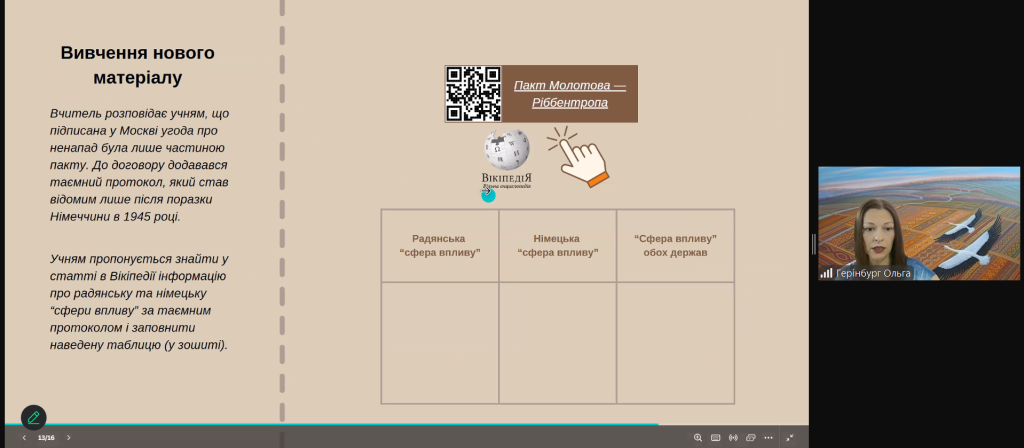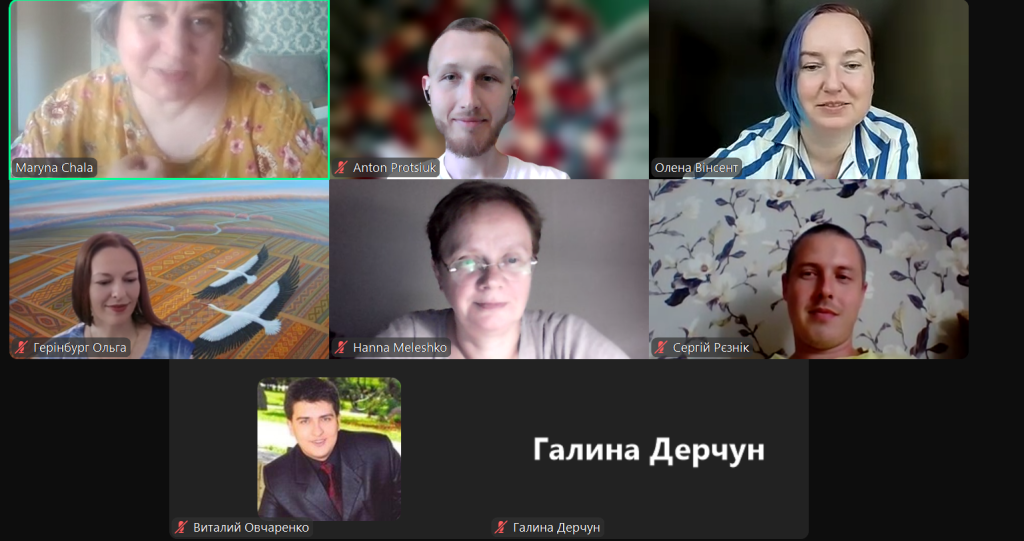In late February a course on Wikipedia for Ukrainian educators became publicly available as a self-paced, asynchronous program. Created by Wikimedia Ukraine within the international “Reading Wikipedia in the Classroom” initiative, it’s hosted by Ukraine’s biggest MOOC platform Prometheus.
The program in Ukraine was first launched last year, when 300 educators had an opportunity to study for five weeks and complete a final assignment designing an integration of Wikipedia in their lessons. Ultimately 64 people passed the whole course.

Our next challenge was to figure out how to make the course accessible anytime. To achieve that we reworked the course and divided it into two parts:
- A basic version of the course that is permanently available on the Prometheus platform as a self-directed, asynchronous course. It contains only instructional materials and tests, no final assignment graded by the trainer.
- An advanced version of the course for graduates of the basic version, available within set periods of time twice a year. This version includes in-depth work with the course trainer and a final assignment on lesson design.
The basic version went live in late February. For now, over 1600 people enrolled in the course, and over 700 educators finished it and received certificates.
In June we are launching the first cohort for the advanced version. Participants are studying for two weeks under the guidance of Maryna Chala, Ukrainian educator and Certified Trainer of the international program. At the end, they will create their own lesson plans.
31 people had signed up for the advanced version before the first cohort was launched. “Amidst war, chronic stress, power outages, and unstable internet, teachers in Ukraine are coming together to learn how to use Wikipedia and other Wikimedia projects in their classrooms. These people genuinely care, so they strive to overcome educational losses and gaps, including by integrating a free, multilingual, multi-format volunteer initiative into their own learning system”, Maryna Chala says.

“Wikimedia Ukraine’s latest initiative carries on the spirit of the Reading Wikipedia in the Classroom program to meet educators where they are. Through a thoughtful cycle of evaluation and localization, they’ve tackled key accessibility barriers and tailored the curriculum to address the needs and opportunities of local teachers. This approach not only enhances the program’s impact but also serves as a valuable example for trainers of the program worldwide. I greatly respect the dedication of the teachers who are joining the program and I hope it continues to bring value to their pedagogical practice. I’m always appreciative of Wikimedia Ukraine’s efforts and I look forward to seeing the program continue to grow under their leadership!”, says Melissa Guadalupe Huertas, Senior Learning and Capacity Strategist at the Wikimedia Foundation.
In the meantime, we will keep promoting the basic version and expect to see a lot more educators take the course in the coming months and years.
More information:
- “Reading Wikipedia in the Classroom” in Ukraine — 300 teachers for now, big plans for the future” (October 2023 update on Diff)
- Landing page for the course on Prometheus (in Ukrainian)
Parts of this article were previously published in the Wikimedia Education newsletter.

Can you help us translate this article?
In order for this article to reach as many people as possible we would like your help. Can you translate this article to get the message out?
Start translation